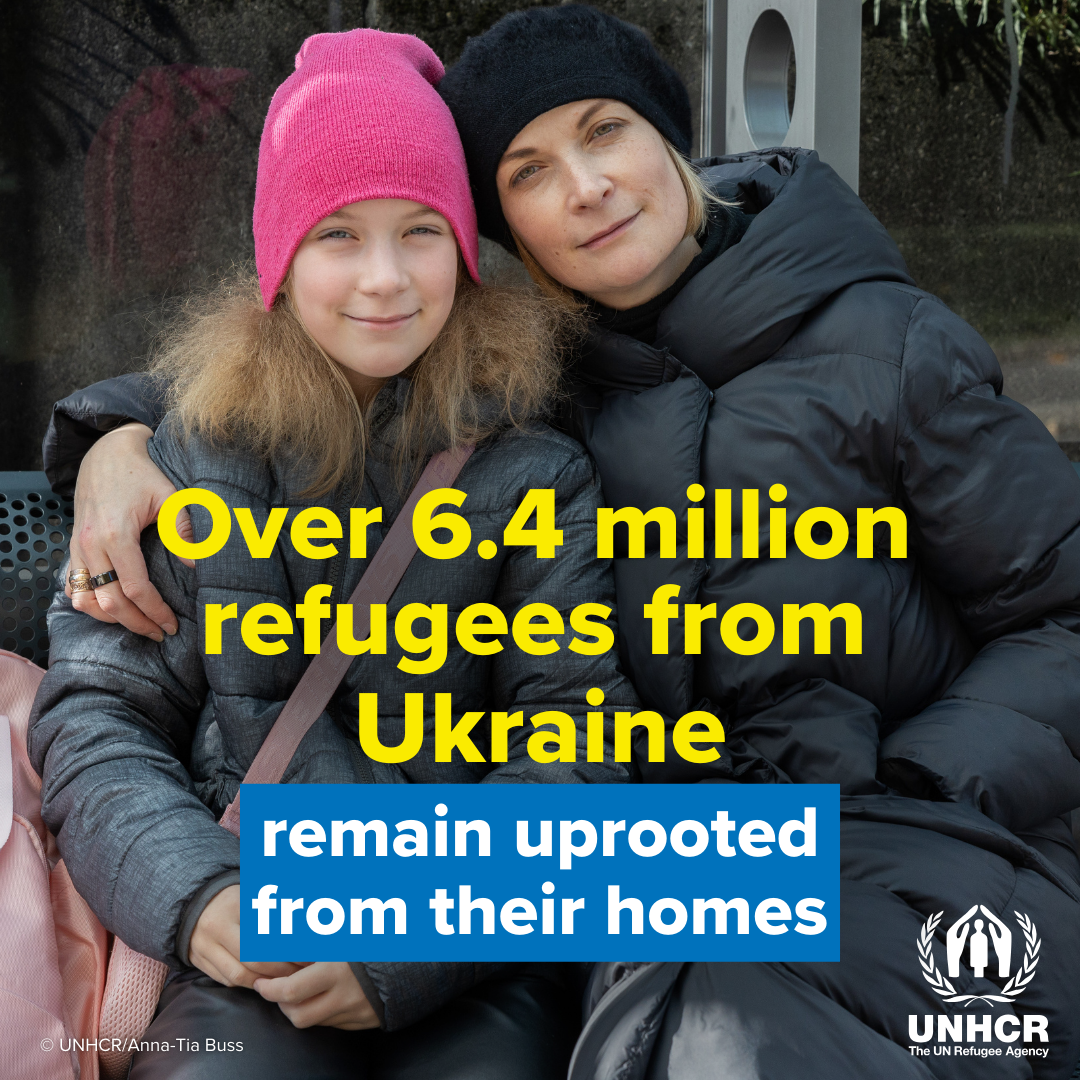
UN humanitarians appeal for $4.2 billion to assist the most vulnerable
24 February 2024 - The war in Ukraine continues to inflict immeasurable human suffering, death and destruction, putting millions at risk of serious violations and generating grave humanitarian needs.
Thousands of people have been killed, injured, or maimed, including hundreds of children. This is the gravest armed conflict in Europe since the Second World War.
Throughout 2023, fighting and hostilities continued to ravage parts of Ukraine and cause massive damage to civilian infrastructure - homes, schools, hospitals, and water, gas and power systems are repeatedly hit and, in some cases, directly targeted.
This compounded the widespread destruction that had already decimated essential services across the country, particularly in the east, where people have now endured 10 years of war, caused by Russia’s invasion.
In 2023, the UN Office for the Coordination of Humanitarian Affairs (OCHA) along with its partners assisted 11 million men, women and children with water and hygiene supplies, materials to repair homes, health or education services, food, cash assistance, as well as counselling, legal aid and demining.
The war has forced millions to flee and nearly 4 million people – including nearly 1 million children – are still internally displaced across Ukraine. There are around 6 million Ukrainian refugees in Europe including around 274,000 in Austria, Hungary, Slovakia and Slovenia. Prolonged displacement has pushed many to the brink, as they depleted their resources and capacity to cope with loss of job or income.
Over 14.6 million people – about 40 per cent of the Ukrainian population – will need humanitarian assistance in 2024. The UN-led response aims to reach about 8.5 million people with assistance.
At the same time, we need to invest in Ukraine’s recovery and reconstruction. In 2023, the United Nations, hand in hand with the Government of Ukraine, local authorities, communities and others, scaled up its recovery work. We are helping communities to remove debris and demine, reconstruct housing and social infrastructure, provide mental health and psycho-social care, support livelihoods and employment and more.
24 February 2023 - The war in Ukraine has taken thousands of lives, caused untold destruction, displaced millions and resulted in unacceptable violations of human rights and international humanitarian law. The situation for many in Ukraine remains desperate, amid “relentless” shelling of civilian targets and infrastructure, the UN’s Emergency Relief Coordinator, Martin Griffiths, said recently.
Speaking at the General Assembly 11th Emergency Special Session, UN Secretary-General António Guterres said: “The one-year mark of Russia’s invasion of Ukraine stands as a grim milestone — for the people of Ukraine and for the international community. That invasion is an affront to our collective conscience. It is a violation of the United Nations Charter and international law. It is having dramatic humanitarian and human rights consequences. And the impact is being felt far beyond Ukraine.”
The Ukraine refugee crisis is the largest displacement crisis in the world. Nearly 8 million people have fled to neighbouring countries and 5.4 million people have become internally displaced.
Amid reports that violence is escalating in the east, latest UN estimates indicated that more than 7,000 civilians have been killed in Ukraine in the last year, with 12,000 injured, but the actual toll is certainly higher. Attacks on civilians and infrastructure must stop.
The Vienna-based independent international Commission of Inquiry, appointed by the Human Rights Council, has found that war crimes and violations of human rights and international humanitarian law have been committed in Ukraine.
The war goes far beyond Ukraine. It has inflamed a food, energy and finance crisis which is affecting some of the world’s most vulnerable people, countries and economies. There is no solution to the global food crisis without ensuring full global access to Ukraine’s food products and Russian food and fertilizers. Under the Black Sea Grain Initiative, more than 21.3 million tonnes of corn, wheat, oil and other food items have been shipped across the Black Sea to markets worldwide.
New evidence shows common patterns of torture by Russian authorities against Ukrainian civilians and prisoners of war in occupied territories of Ukraine and in Russia, the United Nation's Independent International Commission of Inquiry on Ukraine told the Human Rights Council.
Fresh evidence of “horrific…widespread and systematic” abuse and likely war crimes committed by Russian forces against civilians and military detainees in Ukraine emerged on Friday, in a new report by UN-appointed independent rights investigators.
Russian forces in Ukraine faced fresh accusations of war crimes on Thursday as UN-appointed independent human rights investigators released the latest findings of their ongoing probe.
11 000 children have arrived in Slovakia from Ukraine since the war began. Read the inspiring stories of four responders who were among the first to help and continue to give support to refugee families in Slovakia today.
The Independent International Commission of Inquiry on Ukraine invites individuals, groups and organizations to submit information and documentation relevant to its third mandate.
The members of the UN Independent International Commission of Inquiry on Ukraine will give a hybrid press conference in Geneva to launch its comprehensive report. It follows its report to the UN General Assembly last October.
Members of the UN Independent International Commission of Inquiry on Ukraine will give a press conference in Geneva at the conclusion of the oral update to the Human Rights Council (HRC).
The President of the Human Rights Council, Ambassador Václav Bálek (Czechia), has appointed Vrinda Grover of India as a member of the Independent International Commission of Inquiry on Ukraine, which was created by the UN Human Rights Council in 2022.